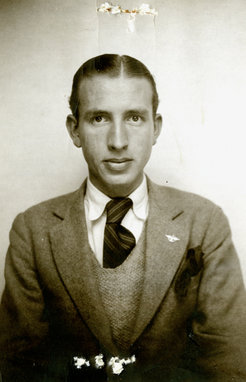The unknown Josef Esser. The career of a legal scholar under National Socialism
Research Project

As a legal theorist, legal doctrinalist and comparative lawyer, Josef Esser had a lasting influence on the legal debates of the post-war period. His concept of judiciary law, the role of pre-conceptions in jurisprudence, and his textbook on the law of obligations received international attention and influenced generations of lawyers. Unlike many other researchers, however, his life and work during National Socialism have remained largely unexplored. My examination of Esser's work between 1933 and 1949 will address this desideratum. Moreover, Esser's professional life is quite enlightening when it comes to the career paths of legal scholars under National Socialism. The project focuses not only on the structural changes that occurred within German universities affecting, among others, the appointment procedure for professors, the field of legal studies and law students, antisemitism, and discrimination in academia, but also on more practical challenges involving the shortage of materials during the war. This broader approach enables a more in-depth examination of the contexts of producing jurisprudential ideas under National Socialism.
